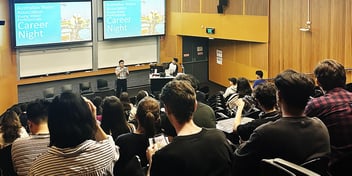How a major water provider used AI to cut pump-station energy costs by a fifth
One major Victorian water provider is utilising artificial intelligence (AI) and machine learning to drive down electricity use in its water treatment operations.
Ensuring Winneke treatment plant’s pumps are operated at maximum efficiency while still achieving the required flow rate, Melbourne Water is using a custom AI program that mines operational data to ‘learn’ the most efficient pump configuration at any given time.
The project is expected to reduce the treatment plant pump-station energy costs by around 20% per year and is being tested at other locations.
Melbourne Water Automation Team leader Russell Riding said the AI system, developed in-house using the utility’s Python platform, is powerful enough to consider a wide range of factors in its decision making.
“The Python program is able to utilise our historical data to determine the most energy efficient combinations of pumps and the associated speeds to run them at in order to achieve the necessary flow rate,” he said.
“Because it was developed by one of our experienced data analysts, it is able to understand a range of factors which are very unique to our system, including reservoir level, available pumps and past performance.”
Furthermore, Riding said the program gives Melbourne Water the opportunity to mediate pump management more effectively.
“The program even gives us the ability to switch to a special training mode where our operations team can test a wide range of pump combinations which may not normally be utilised so the program can learn these for future reference,” he said.
“When in operational mode, the Python program determines optimal pump calibrations and sends them directly to the pump system without any human intervention; the AI determines the best settings and then applies them in real time.”
Cybersecurity was an important consideration when trialling the system, as the information stored on the program might prove useful for hackers, but Riding said best-practice has been employed throughout the entire process.
“The AI is stored on a computer which is not connected to the broader Melbourne Water network, or the internet. This is best practice to ensure that cyber security risks are minimised,” he said.
“The local control system also has rules built in to its code to ensure the AI system can only optimise the pump operations within set parameters. This is an important failsafe feature to ensure production can continue if the AI system fails.”
Riding said the utility is also testing the platform on other assets in the aim of replicating results at the Winneke treatment plant.
“We’re currently commencing testing with Python on another pump station with different requirements to find out if we can replicate the same kind of results that have been achieved at Winneke,” Riding said.
“If the success proves to be repeatable it is likely we will implement Python across a range of environments within Melbourne Water’s operations over time.”
Related podcast:
https://omny.fm/shows/australianwater/david-evans-on-smarter-power-strategies



